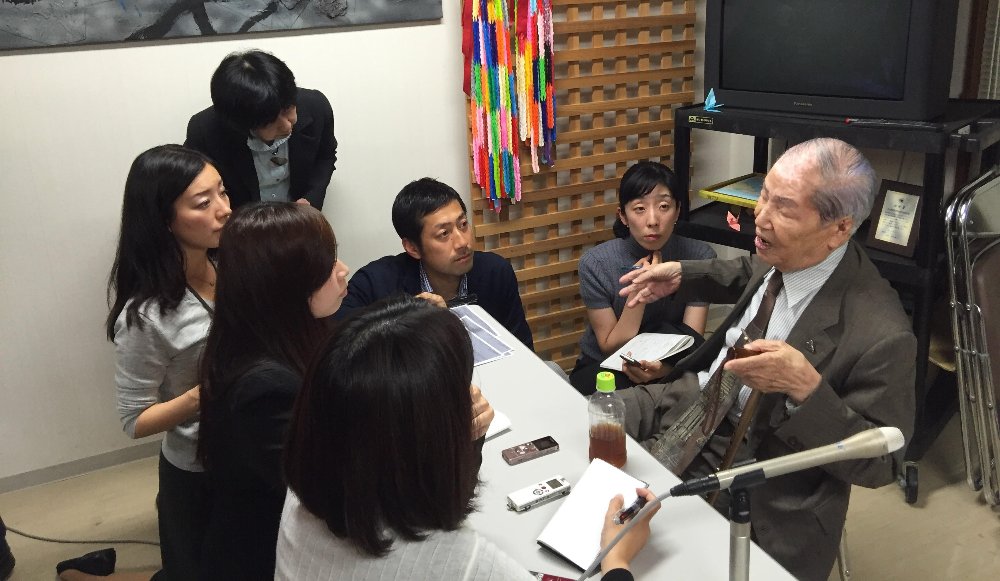
On a beautiful fall evening in Hiroshima, leaders of Nihon Hidankyo, a group of survivors of the atomic bombings, sat at a table in a meeting room, waiting to hear a judgment on their decades of anti-nuclear activism. With a couple dozen of us media types watching, atomic-bomb survivor Sunao Tsuboi, a beloved figure at age 90 who was said to be on a short list for a possible Nobel Peace Prize, listened to a live feed from Norway.
Despite survivors’ then-70 years of work for peace since the nuclear attacks on Hiroshima and Nagasaki, there would be no prize that day in 2015. It would be another nine years until that recognition of their relentless story-telling and other efforts to warn the world of the dangers of nuclear weapons.
On Dec. 10, Nihon Hidankyo will finally receive the Nobel Peace Prize. It will be a well-deserved recognition of their critical work in keeping the world from nuclear catastrophe, and a significant milestone for the estimated 114,000 remaining survivors, known in Japanese as hibakusha (bomb-affected persons).
When the glamorous ceremonies in Oslo are over, Nihon Hidankyo will go back to working for better treatment of the survivors and continuing to witness for nuclear abolition and also — and this is often overlooked — for peace everywhere. Age may be slowing them and reducing their numbers, but the campaigning continues.
The continuing struggle was something that the charismatic Tsuboi foresaw when the 2015 prize went to four Tunisian groups for their work on building a pluralistic democracy. He spoke in upbeat terms, saying that the prize would not have meant any change in the drive to end nuclear weapons. “We will continue our work, as we have done to date,” he said. Similarly, current Hidankyo leaders have talked of this year’s prize as not being the goal but part of the effort to pass along survivors’ experiences for the cause of peace.
I first met Tsuboi in 2009, when he talked about his work, his experience as a college student burned in the bombing of Hiroshima, and the need for peace. At that time, he was 84, a marvelous storyteller with a comedic streak. He told me and an interpreter helping me with interviews of hibakusha for a Fulbright research grant for journalists that he had to constantly tell people on “the other side” that he still had work to do in his life.
In 2016, he met Barack Obama during the first visit to Hiroshima by a sitting U.S. president. Press accounts and videos show a cordial, animated exchange after an Obama speech, with Tsuboi drawing a laugh from the president. Tsuboi told reporters later that he had urged the president to return to learn more about the bombing.
Tsuboi died in 2021, living to age 96. Despite the many health effects of the bombing, survivors have maintained their efforts. Some of their children and grandchildren increasingly help, but new leaders among the survivors themselves, the youngest of whom are now 79, also keep coming forward.
Some speak up because of concern about ongoing wars, including Ukraine. And individuals keep telling their stories to reporters, often for the first time. For decades, Hiroshima’s daily newspaper, Chugoku Shimbun, has interviewed local residents about their A-bomb experiences. This year, there have been at least eight new articles under the “Survivors’ Stories” series, which, like most of the paper’s comprehensive nuclear coverage, is translated into English.
Since first interviewing survivors in 1986, I have been inspired by their dedication to peace in the face of horrible experiences and numerous health challenges. It’s wonderful to see their work recognized. But, as Nihon Hidankyo’s leadership will surely remind the world at the Peace Prize ceremony, what keeps them going is the hope that others will learn from what they went through and there will never be another nuclear attack.
Discover more from Post Alley
Subscribe to get the latest posts sent to your email.

thank you, Joe
This is beautiful and inspirational, Joe. Thank you!
A timely tribute to a worthy cause and a life spent well. Thank you, Joe.
This is inspiring Joe- thank you!